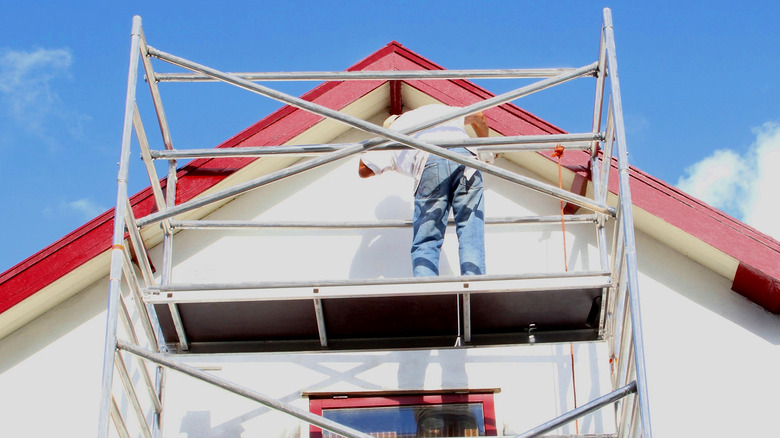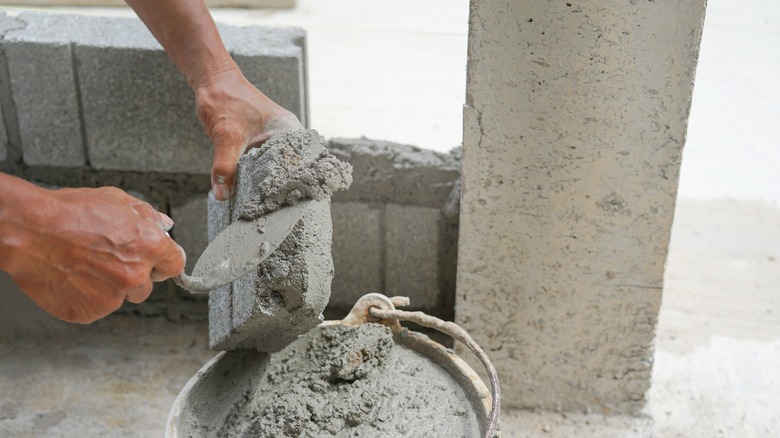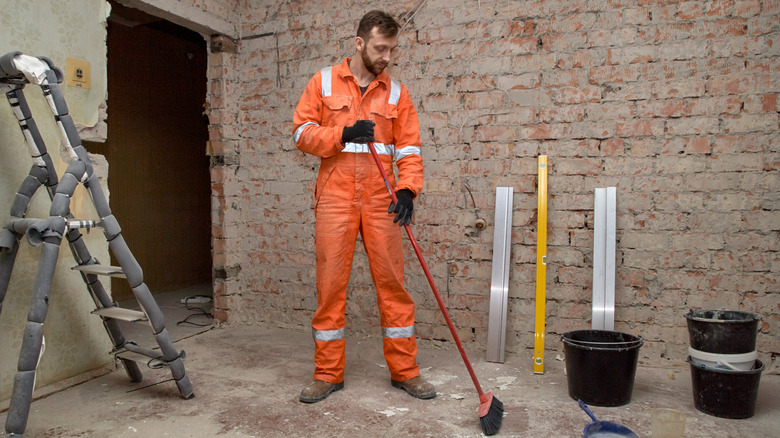Ways To Keep Your Neighbors Happy During Major Renovations
You've heard phrases like "no man is an island," and "it takes a village," right? Well, if you're embarking on any kind of extensive work on your home — and unless your personal castle is surrounded by a moat — you'd do well to take your neighbors into account. No one wants to wake up at 7 a.m. on Saturday morning to the sounds of tree saws or cement mixers. Likewise, in order to maintain the peace with those living a few steps away, you'll want to warn your neighbors about your plans and your schedule for completing them, long before the work starts.
According to The Chicago Tribune the more extensive your renovations, the more important your groundwork will be. In this case, that means you are not only working on a project that will remake your home or yard. You're also casting yourself into the role of neighborhood diplomat-in-chief.
Permits mean permission
If you were at home and suddenly saw workers swarm the yard next door to dig out a new backyard pool, wouldn't you want to know how long the project might take? One way to move ahead with confidence (if not your neighbors' delight) is to have any written permissions required in one place for reference. According to Family Handyman, permits are necessary to ensure proper safety standards are met. And while these are often kept by the contractors you hire, it's a good idea to keep copies yourself to show anyone who has questions or concerns.
Keep your project area clean
People like to think they're entitled to live in civilization when, in fact, we all pay dearly for the privilege. The last thing your neighbors want is to see your yard looking like a combat zone. The home improvement advisors at Normandy Remodeling point out that keeping your place as tidy as possible is one way to let your homies know that you take interrupting their lives seriously. It communicates that you're doing all you can to keep things under control as well as moving as quickly and safely as possible toward their conclusion.
Be transparent with everyone involved
One of the worst things you can do is undertake a major renovation like constructing a wall to define your property line, building a deck, or obstructing traffic without properly informing your neighbors, say the folks at Sweeten. As a general rule of thumb, the more disturbance to your surroundings, the wider your notification should be. If you're only going to impose on your closest neighbors, invite them over. Let them know as much as you can up front. For instance, how long the project should take and the hours and days workers are scheduled.
Stay on schedule
Once again, be the neighbor you want to have, says Apartment Therapy. You should have the particulars worked out well in advance of informing the folks on your block about your project. Ultimately, you're responsible for having your contractors provide you with detailed estimates of how long the work requested will take and when and where they'll be. Then be sure to factor in some wriggle room for unexpected delays, so you can keep the promises you make.
You're the project panager
Remember the sign on Harry Truman's desk that said, "The buck stops here?" In this case, that pertains to you. You're the point person for this undertaking, and that means if a construction worker damages a neighbor's property, tosses a snack wrapper on the ground, or speaks rudely to someone, your neighbors will expect you to clean up the mess. Contractors are often bonded, insured, or both, according to Angi. That means if they're responsible for mistakes, they're legally bound to make them right. But it's still up to you to bridge the gap.
Show your work and gratitude
Your project not only redefines your space; it impacts your relationships, too. You teach your neighbors exactly what kind of person you are and whether you can be trusted. Sending Thank You cards for disrupting their lives is a good step. But a far better one is to invite your neighbors over to see what their kindness and cooperation helped to create, says architect Lorne Rose. In the end, you may realize that building closer bonds with those around you is just as important as the project you saw through to completion — together.






